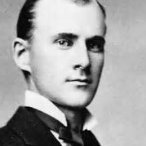How geek was PROGRAMMED to succeed
-
Recently Browsing 0 members
- No registered users viewing this page.
-
Topics
-
-
Popular Contributors
-
-
Latest posts...
-
80
Trump and Putin: The meeting.
What are the chances that Trump exchanges Alaska for a piece of occupied Ukraine? I have it at 50/50 -
33
Crime Ex-Girlfriend Throws Acid on Man at Shopping Mall, Flees Scene
But a lot of women deep down, know that they are choosing a guy that will cheat. They sign up for it -
20
THAILAND LIVE Thailand Live Wednesday 13 August 2025
Livestock Chief Upholds Ractopamine Ban in US Pork Debate Picture courtesy of Workpoint. The Director-General of the Department of Livestock Development has reiterated the country’s strict ban on the use of ractopamine, a controversial feed additive used to promote leaner pork, in response to speculation that US pork imports could soon be allowed. Full story:https://aseannow.com/topic/1369549-livestock-chief-upholds-ractopamine-ban-in-us-pork-debate/ -
0
Health Livestock Chief Upholds Ractopamine Ban in US Pork Debate
Picture courtesy of Workpoint. The Director-General of the Department of Livestock Development has reiterated the country’s strict ban on the use of ractopamine, a controversial feed additive used to promote leaner pork, in response to speculation that US pork imports could soon be allowed. Somchuan Rattanamangkalanon said the department’s position is “clear and unchanged”, the use of ractopamine is prohibited at every stage of pork production in Thailand due to the health risks it poses to consumers. Speaking to reporters, he stressed that while no official policy change or import arrangements had been confirmed, public concerns over food safety must be taken seriously. “Our priority is to protect the health of Thai people. Ractopamine is banned because it can accumulate in the body and cause cardiovascular and other harmful effects,” he said. The department, Somchuan explained, has long carried out proactive monitoring to prevent the illegal use of the substance in slaughterhouses, feed factories and farms nationwide. The goal, he said, is to keep Thailand entirely free from ractopamine and to maintain consumer confidence, both domestically and among export markets, including the EU, China, Russia, and Japan, that also prohibit the additive in livestock production. Thailand’s livestock chief emphasised that food safety remains a matter of national interest and expressed confidence the government would prioritise public health over trade concessions. He added that he would consult Agriculture Minister Attakorn Sirilatthayakon should developments arise, noting that the minister’s position on the issue aligns with that of the Department of Livestock Development. Adapted by Asean Now from Workpoint 2025-08-13 -
119
Report Thailand Tops World in Marital Infidelity Rates: 2024 Study
I just don't believe it 555555 -
20
THAILAND LIVE Thailand Live Wednesday 13 August 2025
Police Arrest Man After Threatening Neighbours and Officers Picture courtesy of Khaosod. Police have arrested a man known locally as “Ton Kheha Or Ngoen” following a series of alarming incidents in which he allegedly intimidated neighbours, left threatening notes and even threatened to stab officers. Full story:https://aseannow.com/topic/1369548-police-arrest-man-after-threatening-neighbours-and-officers/
-
-
Popular in The Pub










Recommended Posts
Create an account or sign in to comment
You need to be a member in order to leave a comment
Create an account
Sign up for a new account in our community. It's easy!
Register a new accountSign in
Already have an account? Sign in here.
Sign In Now